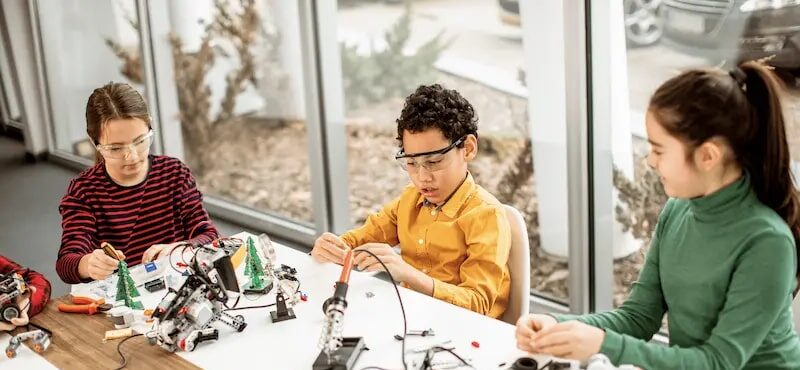In today’s rapidly evolving technological landscape, the importance of introducing robotics education to children at a young age cannot be overstated. As the world becomes increasingly reliant on automation and innovation, equipping young minds with the skills to understand and create robots is essential for their future success and the advancement of society as a whole.

Fostering Creativity and Innovation
Introducing robotics at a young age encourages children to think creatively and innovatively. Through hands-on experiences, they learn to design, build, and troubleshoot robots, fostering a mindset of exploration and experimentation. This creative approach to problem-solving lays a foundation for future endeavors in science, engineering, and technology.
Cultivating Critical Thinking and Problem-Solving Skills
Robotics projects inherently involve challenges and obstacles that require logical thinking and problem-solving skills to overcome. As children navigate these challenges, they learn to analyze problems, devise strategies, and adapt their approaches based on feedback—a process that enhances their critical thinking abilities and resilience in the face of setbacks.
Promoting Collaboration and Communication
Robotics projects often entail collaborative efforts, encouraging children to work in teams, share ideas, and communicate effectively. By collaborating with peers, children learn to respect diverse perspectives, delegate tasks, and leverage each other’s strengths—a skill set crucial for success in both academic and professional settings.
Bridging the Gap Between Theory and Practice
Robotics education offers a tangible platform for applying theoretical concepts learned in school to real-world scenarios. By engaging in hands-on activities, children gain a deeper understanding of mathematical and scientific principles, reinforcing their learning through practical application and experimentation.
Conclusion
Introducing robotics to young children lays the groundwork for a lifelong journey of exploration, discovery, and innovation. By fostering creativity, critical thinking, collaboration, and problem-solving skills, early robotics education equips children with the tools they need to thrive in an increasingly technology-driven world. As educators, parents, and mentors, it is our collective responsibility to nurture the next generation of innovators and problem solvers, empowering them to shape a brighter future through the transformative power of robotics education.























+ There are no comments
Add yours